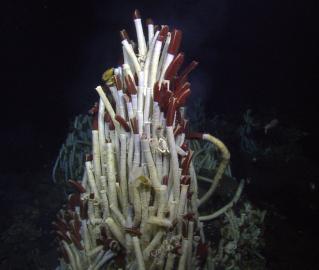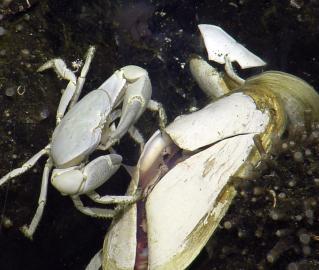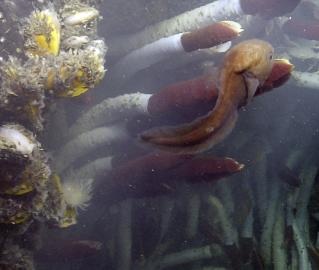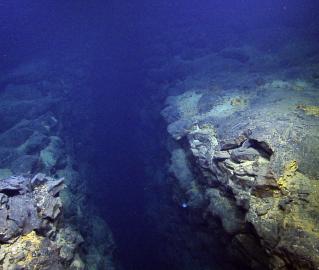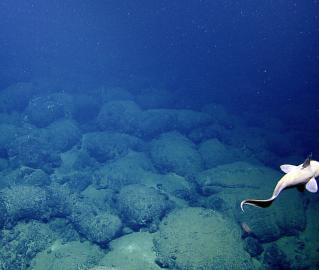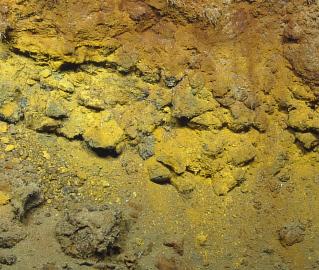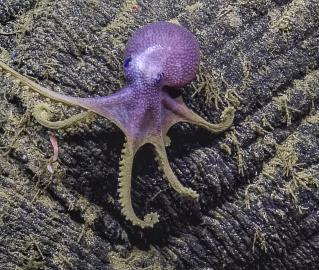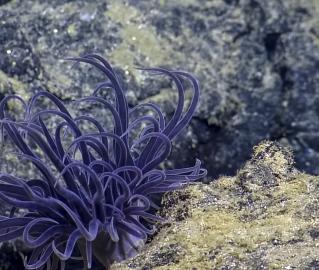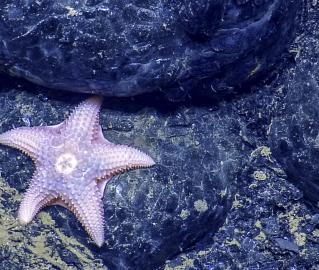Scientists Discover Five New Species of Deep-Sea Squat Lobster: One Named After Exploration Vessel Nautilus
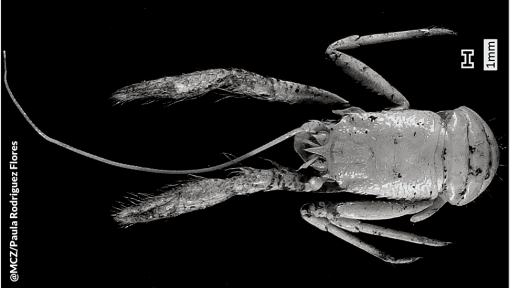
The deep sea invertebrates known as squat lobsters might be up for a brand new classification, thanks to research on samples housed at various museums, including some recently gathered by Ocean Exploration Trust (OET) and other ocean exploration organizations. Researchers in the Department of Organismic and Evolutionary Biology (OEB) at Harvard University have described five new species of squat lobsters from the Eastern Pacific.
“Squat lobster will continue to surprise us with the discovery of many new species,” says lead author Paula Rodríguez Flores, a postdoctoral researcher at the Harvard Museum of Comparative Zoology. “Despite being already a highly diverse group with more than a thousand species described, dozens of new species are being discovered yearly.”
The true diversity of squat lobsters is still poorly known since many species inhabit the largely unexplored deep sea. The recently published study used an analysis of morphological characteristics and DNA to describe five new species of squat lobsters and expand the known geographic distribution of several previously known species.
“Besides exploring previously unsurveyed places, one of the unique things that global programs like ourselves contribute is a way to see how different geographies are connected,” says OET Chief Scientist Daniel Wagner. “Early deep sea research indicated that every location is unique, but as we explore more areas, we are also beginning to see how many of these remote locations are connected. Close collaborations with many different partners are absolutely critical for work across such wide geographies.”
One of the new species was named Munidopsis nautilus in honor of OET Exploration Vessel (E/V) Nautilus, which collected the only known sample of this species. This sample was collected from 2,600 meters deep on an expedition to Ecuador’s Galapagos Rift, a trip that resulted in the description of over 30 new species to date. The study used squat lobster samples collected during expeditions by many different programs, including nine separate OET expeditions that explored previously unsurveyed deep-sea habitats off the Galapagos (NA063), California (NA066, NA067, NA074, NA075, NA117, NA123, NA124), and Mexico’s Revillagigedo Archipelago (NA092). These expeditions were supported by the NOAA Ocean Exploration, the NOAA Office of National Marine Sanctuaries, the National Geographic Society, and the Massachusetts Institute of Technology.
Closely related to hermit crabs, squat lobsters are a group of crustaceans that use their claws to scavenge food in the sand and water column. While diving in the deep waters, OET often documents these crustaceans eating among rocks or atop deep sea corals capturing drifting food in the currents.
So little is known about the deep sea that new discoveries are common. One of OET's goals is to provide a rich foundation of publicly-available data to allow follow-up research. To this end, data and samples collected on E/V Nautilus missions are deposited in publicly-available repositories. Since 2013, OET has partnered with the Museum of Comparative Zoology at Harvard University to archive and curate biological samples from E/V Nautilus expeditions and make these available to researchers worldwide.
E/V Nautilus expeditions focus on seafloor mapping and ROV exploration of the deep ocean, testing and integrating emerging exploration technologies, and inspiring scientists, students, and the public to explore the deep sea from anywhere in the world via telepresence technology. In 2022, E/V Nautilus completed an 8-month field season consisting of 11 expeditions that explored the Central Pacific for 202 days at sea. In 2023, E/V Nautilus will return to the Pacific with expeditions in and around the Hawaiian Islands and north toward British Columbia, all of which are broadcast live over the Internet for anyone to share in the excitement of discovery.

Galapagos Rift
The E/V Nautilus will spend several weeks exploring the Galapagos Rift region. The Galápagos Islands have been instrumental in the establishment of the biological theory of evolution, gaining insights to our knowledge of the chemistry of the Earth’s interior, and understanding the plate tectonic evolution of the eastern Pacific seafloor.
